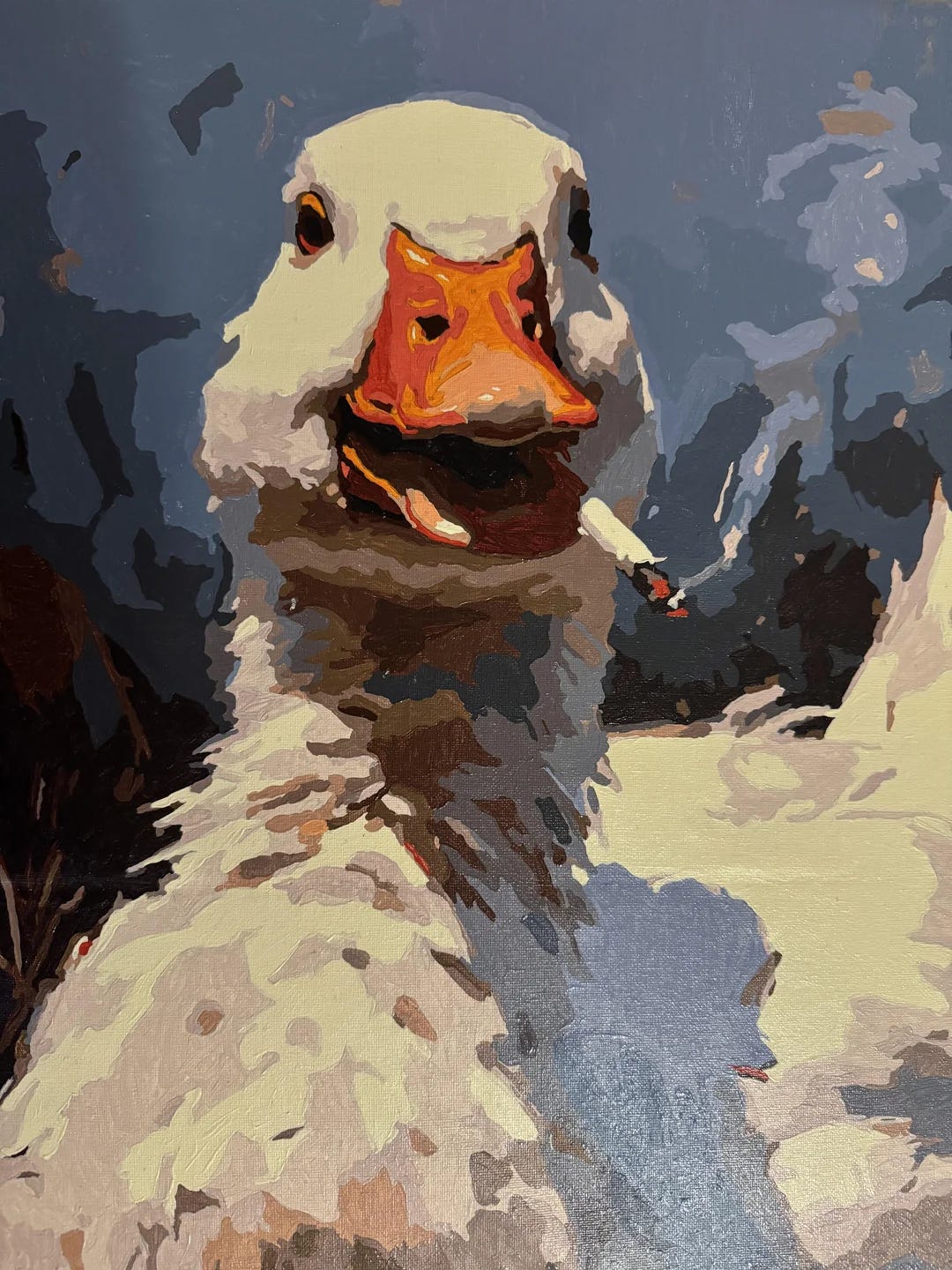
As a teenager, I’m in a perpetual crisis of nearly everything I believe myself to be.
Whether I like it or not, my Being: my preferences, have not yet been defined.
I have shallow preferences: crimson is my favorite color, I prefer peaches over oranges, Edward Hopper is my favorite painter, the movie I love the most is I’m Thinking of Ending Things, etc., but my real preferences: my philosophical outlook, has not yet defined.
I identify broadly as an absurdist but in more esoteric arguments: in debates that underscore my personhood and reveal what I actually understand myself and the world as, I’m, oddly enough, usually totally convinced by nearly every side of the discourse.
For example, in the ancient Greek debate of ‘the chief good,’ Epicurius makes good points, so do the stoics and so does Plato, in my opinion, and as a consequence of my indecision, after I read anything about the debate, I’m left feeling like I knew less than before.
And this applies to my own personal conundrums of my identity as well.
Though I feel I’ve pretty narrowly pinpointed my style (in all sorts of areas) and interests, I lag behind when it comes to honestly identifying my goals, idols, and even moral values.
In the past week I’ve even reconsidered my answer to the question “what is worth knowing”: asking, does the knowledge of my friends’ and family members’ names supersede the importance of knowing thyself in the scope of attempting to have a completed life?
Simply: is a social life, surrounded by love, better than an introspective one?
Or, rather, is a life marked by good grades and success (as per the view of society) superior to the life paths I’ve mentioned?
Related to this, shall I study my books more than I study the ways in which I can improve others’ days?
I ask these questions but no real, confident answer occurs to me.
Similarly, my principal inquired yesterday on who is a politician I idolize.
A few names quickly came to mind: Thurgood Marshall, Jimmy Carter, Obama, etc., but none that stood out completely.
I like love each of these leaders’ unique styles and individual approaches to the grand jobs they held that presented them equally as grand problems to solve, but, for the life of me, I cannot pick which one of the three was the best at leading the nation—I cannot pick which trailblazer I should potentially emulate.
But now, I find that I’ve been looking at these quandaries from an entirely incorrect angle: there is no “best” in philosophy and there is no “best” leader; “best” can’t possibly be quantified in these areas.
Furthermore, there is no one truth in philosophy: no one chief good; no one answer to any question, there is simply multiple truths and multiple answers,——
(Referring to the information above.) This is what separates philosophy from all other sciences: there are no correct answers, and this is why I don’t consider philosophy as an academic discipline: it’s something else; something more significant.
and I have yet to craft my answers with confidence because I have yet to obtain much life experience to draw from to validate any philosophical position.
One’s answer (or lack thereof) to the queries of the great philosophers is a deeply personal response.
Do you align with hedonism, or do you not? No? Yes? Maybe? Your answer is built off of not only your surroundings but your general life experience as well, rather than some non-existent form of empirical evidence—which doesn’t really present itself in philosophy (as I once thought).
Concluding, my identity: my philosophy, has not yet fallen into place, but I’m certain it will:1 with time, and so will yours—if it hasn’t already.
My search for concrete meaning, on the other hand, that’s a lifelong journey…
But not without lots of ruminations and wandering thoughts!





Just as the Dunning-Kruger effect applies to intelligence in specific fields of information I think it can similarly apply to the field of wisdom and philosophical intelligence. A person is showing them self to be lacking in wisdom when they have it all figured out. Only when a person is open and approaches life with a readiness to adapt and learn can they truly acquire wisdom.
Our preferences and opinions arent.what make us whole. You are already whole. It's a disservice to yourself to try to condense yourself down to labels on any level. I do think moral code should be more a feeling and less of a thought. We can over intellectualize ideas by trying to find an answer. I think if we try to figure out how we would react to every scenario, rather than living it and finding out, we do ourselves a disservice and undermine the inner wisedom that will guide us with no thought at all. People leap into action to help people and have no thought at all, only wisedom in motion. Thoughts are important, fun and vital but wisedom will always shine through without effort.